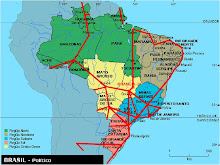Food Security for Latin America’s Future
• Marc Alan Clouse • Domingo Lastra • Nikhil da Victoria Lobo • David WilliamsModerated by • Elizabeth Farina
Thursday 16 April09.00-10.45 Moderator Elizabeth Farina, Professor and Vice-Chair, Department of Economics, University of São Paulo, Brazil, sketched out five major points on food security in Latin America:
• The debate must involve not just farmers but all members of the supply chain, including the providers of raw materials such as seeds and fertilizers, food processors, trading companies, wholesalers and retailers• Sustainability is not just restricted to agriculture but also dependent on the reduction of waste• One size does not fit all – there are different solutions for different parts of the problem• New and innovative technology is indispensable• More dialogue is needed among governments, the private sector and civil society
Marc Alan Clouse, President, Kraft Foods Brazil, Brazil, shared some statistics, noting that 70% of the 1 billion people suffering from food insecurity are involved in the process of producing food. He backed Farina’s final point and said it arguably should be the first. “This is an issue that can’t be solved by any one group or organization. But it is critical enough that it needs to be high on the agenda for all of us. Solutions have to be found on how we are going to work together as a collective group,” he said.
All panellists agreed that consumers are much more knowledgeable and active than in the past and that they now play a crucial role in the decision-making process. Nikhil da Victoria Lobo, Head, Public Sector Americas, Swiss Re Financial Services Corporation, USA, said: “Consumers are making better and more educated decisions on what they consume and how they consume it.”
David Williams, Regional Director, Latin America and the Caribbean, TechnoServe, Peru, said more must be done to bring small and subsistence farmers into the supply chain. By doing that, farmers and their communities grow thanks to an increase in income, while traders, wholesalers, retailers and consumers also benefit by receiving their produce. He spoke of small farmers’ “untapped potential” and called on all sectors to help them join the supply chain. “Smallhold farmers are very important in being able to flexibly supply different markets, and smallholder farming is an incredibly important part of food distribution in the region,” Williams said. “What is required is a change in mentality to see what smallholder farming could be rather than what it is today.”
The panellists answered a question from the floor on technology, specifically GM foods. All agreed that GM foods cannot be discounted and that they could have a role to play in resolving the question of food insecurity. “I think we will live with and without GMOs, but I think they have a role and we will have to address the questions that come with them, such as higher yields and higher crops and more biomass,” said Domingo Lastra, President, Archer Daniels Midland, South America, Brazil. “To be able to handle all those higher yields, we will need to process them and transport them, and I don’t think we are ready for that.” Williams agreed the question of GMOs was still at an early stage, but said that, although it may not be the answer to everything, it is a useful tool in helping small farmers and in areas such as the environment and sustainability.
A question on water also provoked debate and agreement that, with water becoming scarcer, companies and government will have to take innovative measures. Lastra suggested that arid agricultural areas such as parts of Chile and Mexico and north-eastern Brazil could serve as reference points. He warned that water will one day be so important that it is traded as a commodity. “I think that, in the future, we will talk about water credits and water trade,” he said.
Clouse said that environmental sustainability is no longer just about social responsibility, but is now present on the balance sheet. He called it a “competitive necessity” and pointed out as evidence that his company rates his performance on five environmental variables such as water. “That need to be hardwired
Saturday, April 18, 2009
Subscribe to:
Post Comments (Atom)


No comments:
Post a Comment